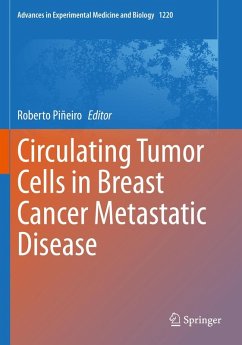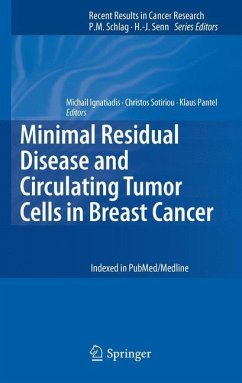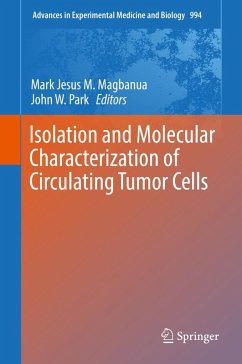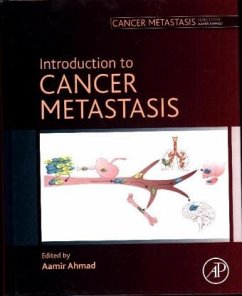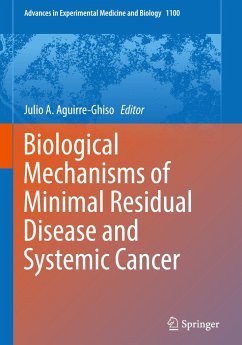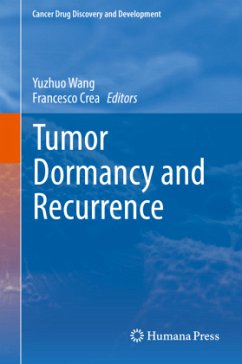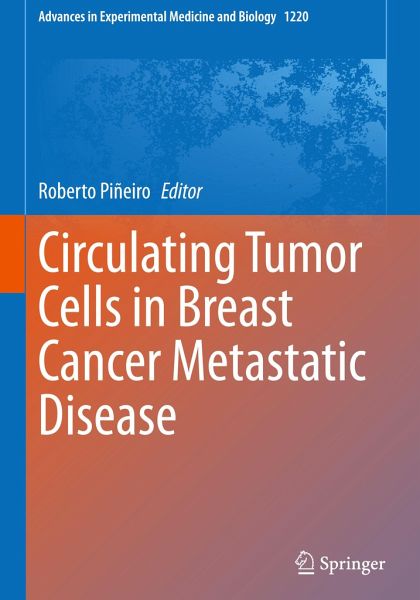
Circulating Tumor Cells in Breast Cancer Metastatic Disease

PAYBACK Punkte
38 °P sammeln!
This book is aimed to summarise the key aspects of the role of circulating tumour cells (CTCs) in breast cancer, with special attention to their contribution to tumour progression and establishment of metastatic disease. We aim to give a clear overview of the knowledge about CTCs, framed in the context of breast cancer, by analysing basic and clinical research carried out so far. In a broader sense, we will address what are the main clinical needs of this disease based on its molecular heterogeneity (subtypes) and lay out the knowledge and understanding that CTCs are giving about it and how th...
This book is aimed to summarise the key aspects of the role of circulating tumour cells (CTCs) in breast cancer, with special attention to their contribution to tumour progression and establishment of metastatic disease. We aim to give a clear overview of the knowledge about CTCs, framed in the context of breast cancer, by analysing basic and clinical research carried out so far. In a broader sense, we will address what are the main clinical needs of this disease based on its molecular heterogeneity (subtypes) and lay out the knowledge and understanding that CTCs are giving about it and how they are contributing and can still improve the better monitoring and management of breast cancer patients. We will discuss the evidences of the use of CTCs as a tool to monitor cancer progression and therapy response, based on the prognostic and predictive value they have, as well as a tool to unravel mechanisms of resistance to therapy and to identify new biomarkers allowing to predict therapy success. Moreover, we will analyse the main aspects of ongoing clinical trials and how they can contribute to determine the clinical utility of CTCs as a breast cancer biomarker. We will also touch upon general knowledge or basic notions of the biology of the metastatic process in epithelial cancers, in order to understand the origin and biology of CTCs. In this sense, we will pay special attention to EMT (epithelial to mesenchymal transition), dormancy and minimal residual disease, three key aspects that determine the outcome of the disease. We will also cover general aspects on the isolation and characterization techniques applies to the study of CTCs, and also the possibilities that the study of CTCs, as a biomarker with biological function, is opening in terms of understanding the biology of metastatic cells and the identification of therapeutic targets based on the functional and molecular characterization of CTCs. Lastly, we will try to foresee the future of CTCs in termsof clinical application and implementation in the clinical routine.



